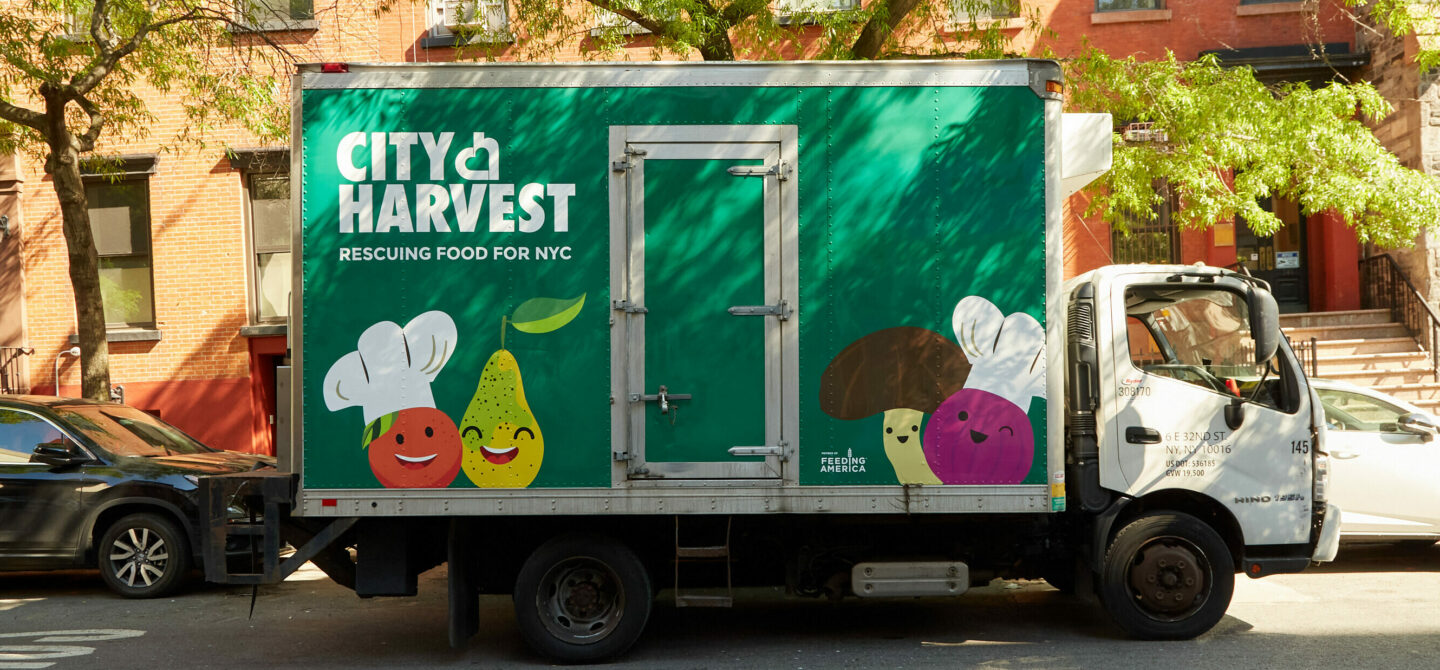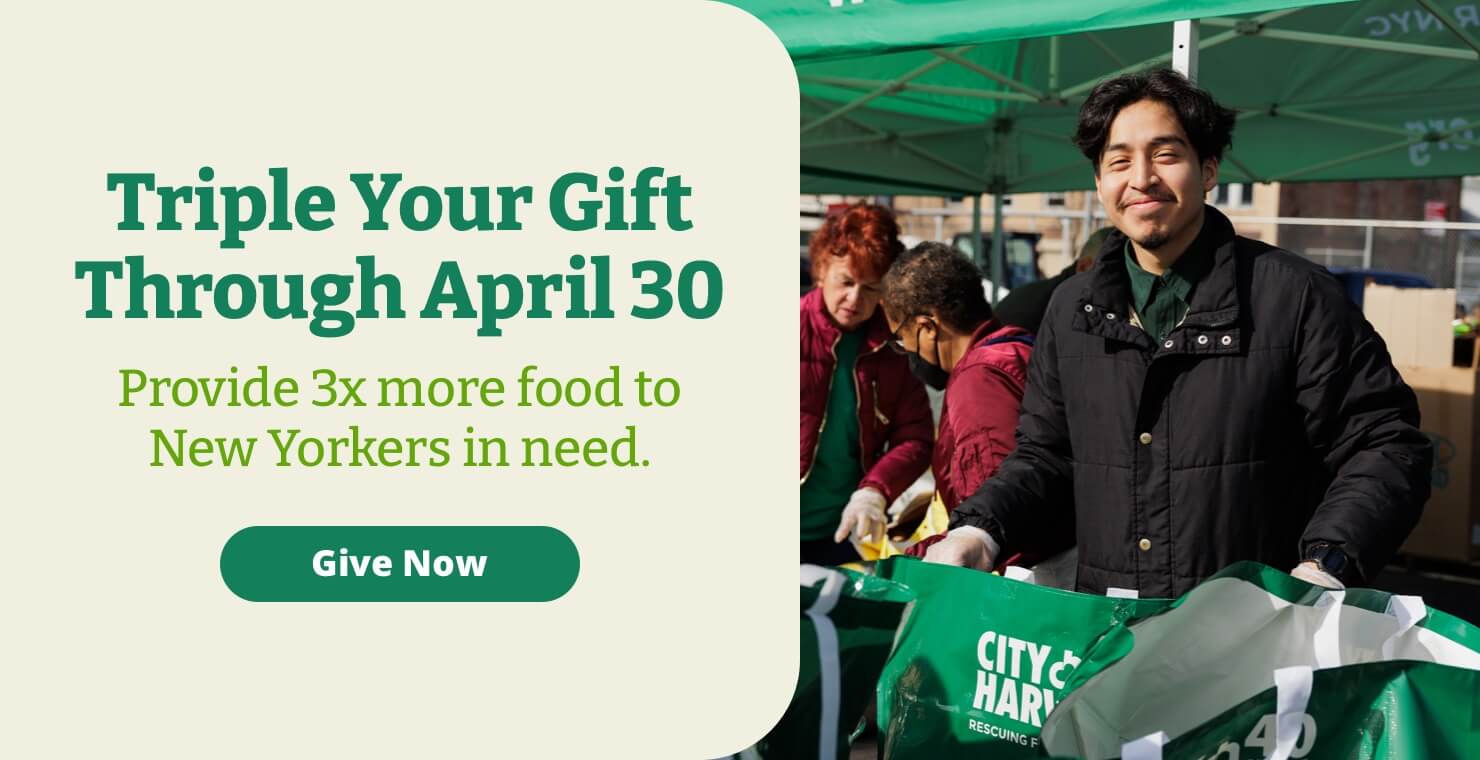
Policy Platform
We advocate for policies that fight hunger, decrease the need for emergency food, and shorten pantry lines.
City Harvest supports policies that provide immediate, dignified, and empowering access to healthy and affordable food, while also promoting policies that address the structural root causes of hunger in our communities.
We do this by engaging elected officials, coalitions, frontline food pantry and soup kitchen leaders, and advocates throughout New York City, as well as at the state and federal levels.
Paramount to this effort is our commitment to centering the interests, expertise, and experiences of the frontline food pantry leaders whose invaluable perspectives directly inform our policy platform.
Our 2023 Policy Platform
Powered by conversations with experts who lead food pantries across the five boroughs, as well as insights based on our staff’s experience, City Harvest’s Policy Platform serves as a roadmap for the ways we engage with public officials and the wider community to advocate for policies that aim to end hunger in New York City. With transitions in political leadership and an increasing number of New Yorkers who cannot afford the true cost of living in our city, the new Policy Platform comes at a critical time for our city.
Our Policy Priorities
#1: Address the Root Causes of Hunger
Advocate for policies that end hunger by addressing its root causes and the rising cost of living in New York City by confronting systemic inequities that disproportionately impact low- to moderate-income households, BIPOC communities, immigrants, asylum seekers and refugees, English as a second language (ESL) households, LGBTQIA2S+, children, seniors, and people with disabilities.
We advocate for policies and legislation that address the many root causes of hunger by ensuring anti-hunger policies and programs also address issues including housing, transportation, healthcare, wages, and mental health.
#2: Strengthen Government Programs
Strengthen and expand eligibility for income-based government benefit programs so that all New Yorkers can feed themselves and their families, ensuring that benefits reflect the true cost of living for New Yorkers.
Programs like the Supplemental Nutrition Assistance Program (SNAP), Special Supplemental Nutrition Program for Women Infant and Children (WIC), Summer EBT, Section-8, and other income-based programs can provide a pathway to food security for New Yorkers. However, more than half of New Yorkers with inadequate income are ineligible for income-based government programs because eligibility is based on antiquated federal poverty guidelines that fail to reflect the true cost of living in NYC. Furthermore, benefits are vastly inadequate for those who are eligible—for example, SNAP benefits provide $2.73 per meal for participants across the country while the cost of food in New York City is over $3.60 per meal, according to the Urban Institute.
#3: Bolster NYC’s Charitable Food Network
Ensure that New York City’s food pantries, soup kitchens, and shelter networks have the resources to provide all food-insecure New Yorkers with access to food that accommodates individual and cultural preferences, and religious requirements, including Halal and Kosher.
Many food insecure New Yorkers struggle to access culturally desirable or religiously required foods (including Halal and Kosher). Furthermore, pantries face a host of other barriers and compliance–related issues that may challenge their ability to generally provide food for the community.
We work to remedy this by advocating for:
Programs like Nourish NY, the Hunger Prevention and Nutrition Assistance Program, Community Food Connection, school meals, and other government food access programs to not only adequately and equitably support the demand for emergency food across our city, but to also be intentional from whom and how we source the food.
Flexible and equitable funding for pantries to be able to stock their pantry shelves, afford rent for their pantry space, cover overhead costs for waste removal, invest in staff, update and access equipment, and invest in infrastructure to safely store and distribute food.
Advocate for government structures, programs and processes that are transparent, equitable and accessible to pantry leaders, including public hearings on issues that are important to our network and other tools that reduce red tape and make government accessible.
#4: Create an Equitable and Sustainable Food System
Advocate for an equitable and sustainable food system that benefits workers, growers, and businesses that value their workforce, the environment, health and nutrition, and the local economy.
We advocate for:
Policies such as the Good Food Purchasing Program, that support food businesses that integrate valuing their workers, the environment and consumers into their operations.
Policies that incentivize good food jobs that provide great working conditions for food chain workers and support food access in their communities.
Policies and programs that disrupt power structures so food access shifts from the hands of large institutions to passionate community groups and values-based food operations. This is done through efforts such as food policy councils, public/private committees that bring stakeholders to the table, and seeding funding for community–led initiatives.
